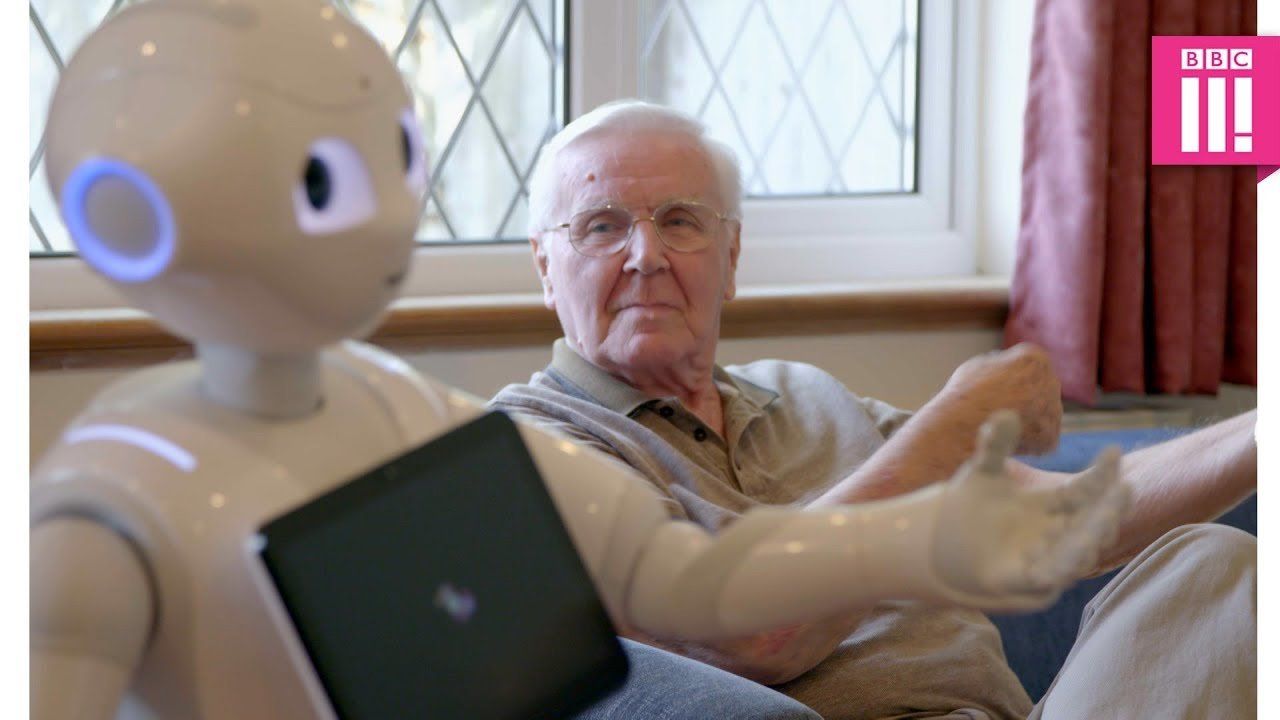Social Care, Anyone Can Identify the Problems but Who Can Sell the Solutions to the Voting Public
Dementia Tax, Taxing of Pensions and Dramatically Reformed Inheritance Tax.....

Another interesting debate took place in the House of Commons on Tuesday May 8th, 2018, which if nothing else, enlightens more people to some of the problems faced by the Social Care sector. It is not all encompassing but it does give a flavour to something that will occupy an ever-increasing amount of time in the public spotlight over the next few months.
It is quite ironic that at the same time the key debate about the future funding of Social Care rolls on, this week it is the turn of the ideas of the Resolution Foundation and the ideas of re-distributing wealth between the generations. The ideas that may have some merit, unfortunately as with any changes in taxation, because that is what the various funding options are, there will be winners and losers. Politically this is dangerous territory as the lead up to the last election showed. The so called “Dementia Tax” was muted but disappeared just as quick as it had appeared when the public reaction was seen as a Public Relations disaster, which could have cost the Conservative Government an embarrassing electoral defeat. The reality is people don’t like giving up something that is theirs (albeit mainly gained on the back of historical property boom), and when it comes to property the impact is multiplied, as the younger generation expecting the inheritance benefit are not keen on giving up something that they see as going to be theirs.
A difficult prospect with no easy answers but it is interesting that the public appears to be being softened up for what will be some unpopular decisions.
The Headlines and the Summary of the Parliamentary Accounts Committee are set out below
The Public Accounts Committee report warns urgent action also required to reverse care work's poor public image and boost recruitment and retention.
The Headlines
·Adult social care sector underfunded
·Brexit causing uncertainty over workforce sustainability
·Concerns that Department sees Green Paper as "cure all"
CONCLUSION: NOTHING NEW THERE THEN!
The Summary
The adult social care sector is underfunded, with the care workforce suffering from low pay, low esteem and high turnover of staff. The care sector is in a precarious state but the Department of Health and Social Care (the Department) has not yet said how it intends to put in place a long-term, sustainable funding regime to meet the ever-increasing demand for care. The Department does not know whether the ways that local authority’s commission care, and the prices they pay providers, are contributing to the problems within the care workforce. We are not convinced that the lack of regulation within the care sector workforce and the balance of regulation versus a market-based approach, is supporting the care sector to provide the best care possible. The UK’s departure from the EU is causing uncertainty over how the workforce will be sustained, particularly in areas that are more reliant on non-UK workers. There is an urgent need to reverse the poor public image that care work has to boost recruitment and retention across the care sector. We are also concerned that the move to supporting people with substantive and critical care needs only is contributing to growing levels of unmet need for people with moderate care needs. These moderate needs may well grow into substantial or critical needs if support is not given. The Department has committed to addressing all these issues through the health and care workforce strategy that it is currently consulting on, and the promised Green Paper on funding of care for older adults. But given the pressures on the sector, we are concerned that the Department sees the Green Paper as a cure all and underestimates the scale of the challenge. The Department must ensure that its delivery partner, Skills for Care, is properly supported and funded to implement the workforce strategy.
CONCLUSION: WISE WORDS INDEED
The Green Paper may or may not be the answer but based on the last 20 years in the words of the Minister himself several months ago, by his own admission there has been plenty of talking and very little progress.
“Now no-one could accuse this or any government of not talking about the issue. In the past 20 years there have been 5 Green or White Papers, numerous policy papers, and 4 independent reviews into social care. So, it would not be unreasonable to expect scepticism about yet another one this year - and as the new Health and Social Care Secretary I do rather feel the weight of stalled reform programmes on my shoulders.”
The fundamental issue is that the demands on Social Care has changed beyond all recognition in the last 20 years with the ageing population creating a whole new set of problems, which unfortunately have by and large been addressed with the same solutions and structures that have historically been in place. What may have worked 20 years ago is no longer relevant and therefore some quite dramatic changes are needed to address the modern day and future needs. A fundamental change in the demands of a service requires a fundamental change to the approach and the framework that delivers it. If it is to be successful it will, as with any major change in policy leave winners and losers, the winners you would hope would be the vulnerable members of society, but who the losers will be and how that is managed is probably the key to the overall success of the solution.
So Where are the Real Challenges for Government?
1. Funding
It is blindingly obvious, and the consensus is that Health and Social Care is underfunded and undoubtedly at points in time it is reaching crisis point, however recognising the problem and addressing the problem are two very different issues. The funding must be in place if the overall system is to work, without proper funding the key issue of staff recruitment cannot be addressed, and without staff we have no service.
However, whilst the admission that greater funding is needed seems to be widely accepted, the means to achieve it are politically challenging. The bottom line is that the public don’t like money being taken from their own pockets, be it an increase in income tax rates, vat, national insurance etc. However, whilst to target the property-based wealth of the older generation has a certain logic it is politically risky, and whilst politicians want to solve the problems of Health and Social Care they may not want to do it if their political future is threatened by it. The view may appear to be cynical, but it is simply the truth, as we are dealing here with human nature.
2. The structural framework and the integration of Health and Social Care
I have worked in Health and Social Care for the last 27 years and in all of that time the idea that the only answer to the problem will be by means of integrating Health and Social Care has remained a constant. However, the reality is that the two remain apart and to a certain extent entrenched with a degree of self-interest and self-righteousness. Historically social care was “Home Help”, it was low level support and generally linked to housing and other social services delivered through the Local Government network. At that moment in time it probably made sense, but in the modern day the services delivered to residents in their own homes have changed dramatically with personal care and challenging medical conditions in reality making the service more Health than Social.
That is a fact and mainly the result of an ageing population and the advances in medicine, however to change the machinery of the Health Service and Local Government to develop an infrastructure fit to deliver a modern service is a challenge that nobody really wants to address. Administration is quite often about power, and people do not like giving it up, the cultures of the Health Service and Local Government are very different and neither group wants to give up control. This can only really be addressed by Central Government who ultimately hold the purse strings, however the control of funding can be persuasive it cannot guarantee success or buy loyalty.
Where does this leave the providers of Social Care?
The providers are so often seen as the baddies, portrayed as simply in it for the money at all cost and they are to a large extent ignored in the debate. This seems to be somewhat short-sighted in my view, and actually not true, but in the world of Health and Social Care, truth, knowledge and evidence seems to fall someway below that of maintaining personal and organisational reputation. This is something that providers have learned to live with but what will be thrown in their direction in the future?
The providers are in fact to a certain extent simply the product of the environment in which they operate, they react to the demands of their customers and the legislative landscape in which they must deliver care. Given that changes to the Health and Social Care landscape are inevitable what will this do to the market for providers?
As Authorities for the publicly funded provision put more money towards Health and Social Care, they will inevitably demand more, and the only way in which providers will be able to do this will be by consolidation of provision to deliver economies of scale and the introduction of new technology. The sector is just beginning to embrace digital technology but has been held back by the lack of funding with the products being somewhat limited, again due to the lack of money in the sector. However, this is beginning to change as the digital products and expertise from other developed sectors and products are starting to become utilised in the care environment.
Ironically for privately funded providers their main challenge will remain the recruitment of staff but operating in a true market these providers at least have the ability to control their pricing. If staffing remains a problem, then these businesses will look towards new technology as a means of reducing costs and enabling more resources to be put towards improving pay and conditions and attracting the best carers. The “Uber” like technology is very interesting and the companies that can encompass this along with a quality of care model will see a land of opportunity.
PJT Consultancy Services Ltd based in Shrewsbury is run by Phil Talbot a Chartered Accountant. A former CFO for a large Social Care provider now specialises in the provision of business advice with regards to the Health and Social Care Sector as well as general accounting and strategic support.








